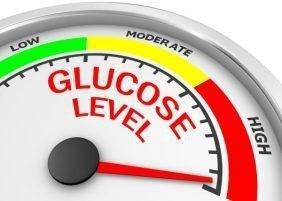No products in the cart.

Can your blood glucose regulation affect your memory?
Posted by: Didrik Sopler
This study investigated how the ability to control the levels of blood glucose was related to mood and cognition (Young H, Benton D, 2014). 155 adults, aged 45-85 years, without a diagnosis of diabetes, were given an oral glucose tolerance test and cognitive tests. The researchers found that those with...
Read more

Your blood glucose level affects the health of your blood vessels.
Posted by: Didrik Sopler
Everybody agrees that to be able to function well and live a long life, we need good blood circulation. This necessitates a healthy vascular system. Your vascular system is especially important for your heart, brain, and the rest of your body because the blood delivers nutrients and oxygen. Without a...
Read more

Your Blood Glucose Level after You Eat can Affect Your Risk for Cardiovascular Disease.
Posted by: Didrik Sopler
https://youtube.com/embed/10nP2o_aZjI Your blood glucose level after you eat can affect your risk for cardiovascular disease. Several studies show a correlation between blood glucose levels and what happens to your arteries. The most common ways to evaluate the blood glucose metabolism is to measure fasting blood glucose and Hemoglobin A1c (HbA1c)....
Read more
Surprising way artificial sweeteners induce glucose intolerance.
Posted by: tissuerecovery Admin
Higher Blood Glucose Makes Your Memory Suffer
Posted by: Didrik Sopler
Like so many others, you may have noticed that you can’t remember like you once could. Sadly, some of your most common habits may actually increase your risk for developing dementia. Pay attention to this – life expectancy is increasing! If you don’t do anything to change, most likely you...
Read more

Eating irregularly is a risk factor for the metabolic syndrome and insulin resistance.
Posted by: Didrik Sopler
The metabolic syndrome is a condition consisting of multiple symptoms including elevated blood glucose, triglycerides, cholesterol, LDL (the bad cholesterol) and decreased HDL (the good cholesterol). A part of the metabolic syndrome is insulin resistance which occurs when the insulin is not able to transfer the blood sugar into the...
Read more
Showing: 1 -7 of 7






